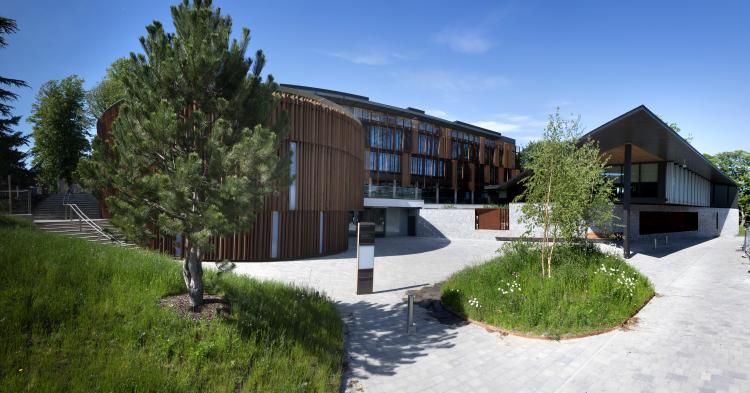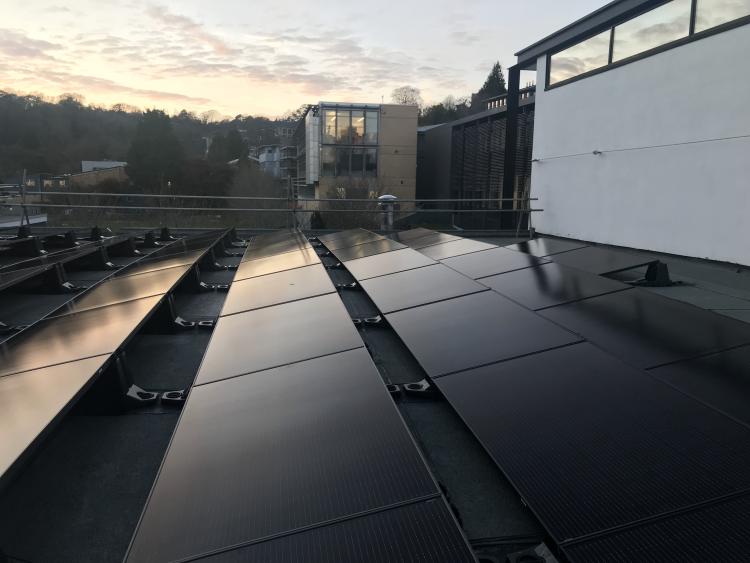University of Winchester utilises £3.1m grant to save over 500 tonnes of carbon per year

Project overview
The University of Winchester was awarded £3,120,518 as part of the Phase 1 Public Sector Decarbonisation Scheme (PSDS) to decarbonise its heating methods and increase its energy efficiency. The funding, provided by the Department for Business, Energy & Industrial Strategy (BEIS) and delivered by Salix, has enabled the University to upgrade its technologies and move closer to its carbon-saving goals.
Winchester prides itself on being a university for sustainability and social justice which works to champion global positive change. Having declared a climate emergency in 2020, it has committed to being carbon neutral by 2030, although it aspires to attain this goal in 2025.
To complete this mission, the University are installing air source heat pumps (ASHPs), solar panels and building management systems which will significantly reduce energy requirements. The ASHPs will replace the 34 gas-fired boilers while the Solar PV will increase the University’s on-site electricity production by over 200%.
The work is in line with the University’s Carbon Management Programme which was first published in 2006 and provides a routemap designed to deliver significant campus-wide energy reduction projects. The low carbon technologies will save a total of 2,702,353 kW a year and builds on the University’s achievement of reducing its carbon footprint by 65% since the 2006 baseline year (kWh/m2 using location-based methodology).
The Salix funding provided a real boost to delivering our net zero goals as set out in our Strategic Plan 2030. This was an ambitious project which included the replacement of gas water heating and installation of 34 air source heat pumps.
Technical breakdown:
- Low carbon air source heat pumps (ASHP)
- Wireless heating controls
- Solar PV
- LED lighting
- Building management systems
Education for Sustainable Development
The University was first awarded the National Union of Students’ (NUS) Responsible Futures accreditation in 2019 as a result of the partnership between the University and its Students’ Union, and their success in embedding sustainability into all aspects of student life and studies. Moreover, all programmes require teaching of the UN Sustainable Development Goals (SDGs) while climate change modules are offered together with Carbon Literacy training. The University is a member of the COP26 Group of Universities, a signatory of Race to Net Zero and to the SDG Accord.
Sustainability strategy
The students and staff are encouraged to lower their carbon footprint by getting involved in the University’s sustainable schemes. Options include the provision of interest-free loans for train season tickets, a reusable cup scheme and a cycle to work scheme combined with excellent provision of cycle hoops on campus. The cycling programme includes a monthly Bike Doctor repair service which visits campus to carry out free repairs and provides free cycle loan to students to encourage take-up. Allotments are provided and Green Grants made available to students who have ideas as to how to improve sustainability on campus.

The Public Sector Decarbonisation Scheme
The Public Sector Decarbonisation Scheme is funded by The Department for Business, Energy and Industrial Strategy (BEIS) and delivered by Salix Finance.
The scheme was made available for capital energy efficiency and heat decarbonisation projects within public sector non-domestic buildings, including central government departments and non-departmental public bodies in England only, to deliver the following objectives.
- Deliver stimulus to the energy efficiency and heat decarbonisation sectors, supporting jobs.
- Deliver significant carbon savings within the public sector.
Click here to download the case study.


